| Zeitschrift Umělec 2001/2 >> Female Cities | Übersicht aller Ausgaben | ||||||||||||
|
|||||||||||||
Female CitiesZeitschrift Umělec 2001/201.02.2001 geschichte | en cs |
|||||||||||||
|
"Jitka Hanzlová, Stedelijk Museum, Amsterdam, 17 March – 27 May 2001; Female, Jiří Švestka Gallery, Prague, 4 May – 23 June 2001
It is rare for viewers in the Czech Republic to have an opportunity to see contemporary international art while it is current in prestigious international galleries and institutions. However, a recent constellation of two concurrent exhibitions presented photographs by Jitka Hanzlová at her show, Female, in the Jiří Švestka Gallery, and her retrospective at the Stedelijk Museum in Amsterdam. Jitka Hanzlová (1958) has been living in Germany since 1982, where she also studied. In 1992, she took part in an exhibition of Czech ex-patriot photographers in Mánes Gallery, Prague, without receiving much attention. It wasn’t until she took part in the first Manifesta biennial in Rotterdam, five years ago, that she started to get recognition. Rokytník (1990-1994) wasn’t just a successful graduation project, it was primarily Hanzlová’s attempt to come to terms with the world of her childhood. Placement of the series in the first two halls at her retrospective in Stedelijk confirms the series’ significance to both Hanzlová and to her international success. In addition to describing contemporary situations and the unique esthetics of the Czech countryside, Rokytník also evokes a certain timelessness, and the cyclical character of the changing seasons, thanks to the artist’s effort to evoke her childhood, and her emphasis on the enduring connection of humans with nature. Yet Hanzlová is not a documentary photographer. The most dramatic images of the series include pictures of children crawling in a race down the road and a view of a room filled with steam and a slaughtered pig. Rokytník led Jitka Hanzlová as a photographer into a complex world of media and yet at the same time she displays an old-fashioned belief in the truth of the photographic principle: “this happened” (Roland Barthes, Camera Lucida, pp. 69-73, Archa, Bratislava, 1994). Thanks to this truthfulness she is able to take herself back 25 years to the world of her childhood. Her next series, made entirely in Germany and entitled Bewohner (1996), featured similar elements. Viewers encounter people in their homes, on streets of the city and in its peripheries. But these photographs are neither documentary portrayals nor snap shots; they are civilian portraits, which place emphasis on the women and girls portrayed while the background attributes have no defining role. Hanzlová focuses on the city itself, and the slightly picturesque and abstract details she chooses echo the Pragensia series by Czech photographers Jasanský & Polak. Her third series, Vilesalm (1999), was commissioned. Together with three other photographers, Jitka Hanzlová was asked to portray a leisure center in Arden, Belgium. In an effort to avoid the original setting, Hanzlová ran off to the woods, and the resulting images made up a relaxed series portraying walks in relatively untouched countryside, just commencing its still relatively harmonious synergy with civilization. As in her other series, Hanzlová does not get in the way of the forest — the shots are not deformed by artistic concept; they just are what they are, nothing more. The forest (like the people she photographs) stands simply as itself, which might be why she was able to get within footsteps of a deer or right next to a galloping herd of wild boar. Despite the objectiveness of the camera, the images look very intimate. Her latest series is entitled Female and it was exhibited in both Prague and Amsterdam. Hanzlová worked on the series for four years (1997-2000), and it comprises portraits of women taken in a number of cities in Europe and New York City. With the exception of Rokytník, they are all large cities, and the New York pictures in particular offer a variety of interesting and widely differing types. Although anthropological classification of the women portrayed is tempting, this is not the main motif (if it is one at all). The standardized portrait shot is not intended to function as objective classification, but gives each woman identical default conditions for communicating with the viewer. As with the previous series, Female makes most sense as a full set of 50 photographs (of which about half were exhibited in Prague). They differ from the analytical, baldly objective strategies (especially German) of contemporary portrait photography, which are influenced by a particular strain of modern portrait painting. The clean, light colors that typify Hanzlová’s approach support the basic elements of her photography — communication and emotions. While at first sight the series appears to be based on a conceptual approach and suggests a possible cataloguing of women according to age, location and race, its essence lies in different aspects. The models were also chosen emotionally, as Hanzlová approached women on the street based on immediate vibrations. The set could potentially be expanded to provide space for all women in the world but its point is rather to focus on “the most intense” women. By offering certain positive role models while making us judge them, Hanzlová shifts away from the theme of emotional documentary and towards the limits of female art in her last, unfinished, series. Translated by Vladan Šír "
01.02.2001
Empfohlene Artikel
|
|||||||||||||
|
04.02.2020 10:17
Letošní 50. ročník Art Basel přilákal celkem 93 000 návštěvníků a sběratelů z 80 zemí světa. 290 prémiových galerií představilo umělecká díla od počátku 20. století až po současnost. Hlavní sektor přehlídky, tradičně v prvním patře výstavního prostoru, představil 232 předních galerií z celého světa nabízející umění nejvyšší kvality. Veletrh ukázal vzestupný trend prodeje prostřednictvím galerií jak soukromým sbírkám, tak i institucím. Kromě hlavního veletrhu stály za návštěvu i ty přidružené: Volta, Liste a Photo Basel, k tomu doprovodné programy a výstavy v místních institucích, které kvalitou daleko přesahují hranice města tj. Kunsthalle Basel, Kunstmuseum, Tinguely muzeum nebo Fondation Beyeler.
|







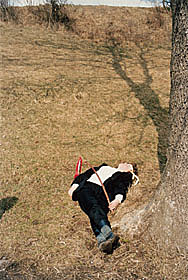
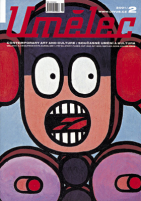


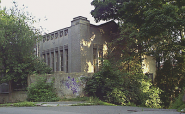
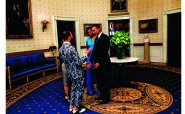
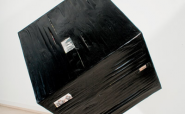
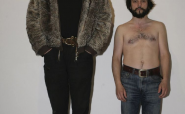
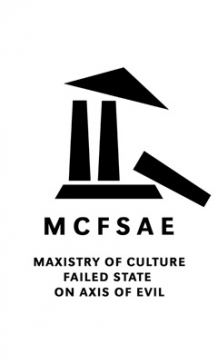






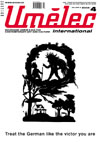




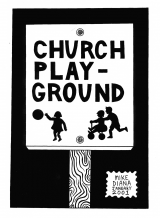
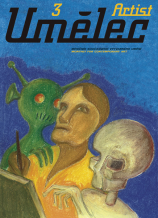
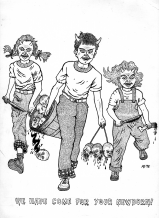
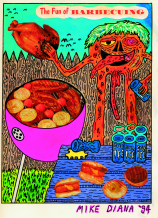


 We Are Rising National Gallery For You! Go to Kyjov by Krásná Lípa no.37.
We Are Rising National Gallery For You! Go to Kyjov by Krásná Lípa no.37.
Kommentar
Neuen Kommentar einfügen